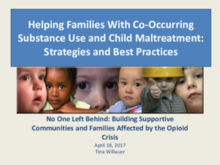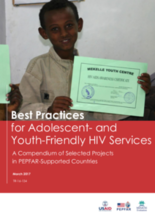This page contains documents and other resources related to children's care in the Americas. Browse resources by region, country, or category.
Displaying 381 - 390 of 566
The Bridges Transitions Framework (Bridges, 2009) implemented in this study shows some promise in smoothing foster youth reactions to change. The framework was adapted to help older youth, foster parents, and social workers look beyond the concrete goals of independent living (e.g., housing, employment). It is process-oriented and attends to the psycho-social reactions and emotions that youth experience during times of significant change.
This study from the Special Issue on Kinship Care of the Child Welfare Journal examined the impact of a kinship supports intervention implemented in 16 children services agencies in the US.
This paper from the Special Issue on Kinship Care of the Child Welfare Journal discusses a three-phased service model assessed using Family Group Decision Making (FGDM) conferences with informal kinship caregivers and their families.
This article from the Special Issue on Kinship Care of the Child Welfare Journal explores the Family Connections Discretionary Grant Program in the US.
This presentation features:
In order to better serve youth trafficking victims, this study developed a Human Trafficking Screening Tool (HTST) and pretested it with 617 runaway and homeless youth and child welfare-involved youth.
This report presents the findings from a study that aimed to explore the application in practice of the ‘necessity principle’ from the Guidelines on Alternative Care for Children (UN, 2009) by using three quantitative and three qualitative indicators that provide information about whether children and families have received support to the fullest extent possible before a child ends up outside of parental care arrangements in formal or informal care, or living alone.
This paper reviews factors impacting the likelihood that a permanent placement will be attained for a child in care in greater depth, as well as several programs and initiatives implemented to support positive permanency outcomes in the United States.
En esta publicación, a partir de la experiencia de trabajo y la reflexión sobre su propia práctica, La Barca ordena, sistematiza y pone a disposición de todos los actores del sistema de protección a la infancia de Uruguay los principales aprendizajes de la tarea realizada en los últimos años.
This compendium contains the findings from a review of 13 projects providing HIV services to adolescents in PEPFAR-supported countries.







